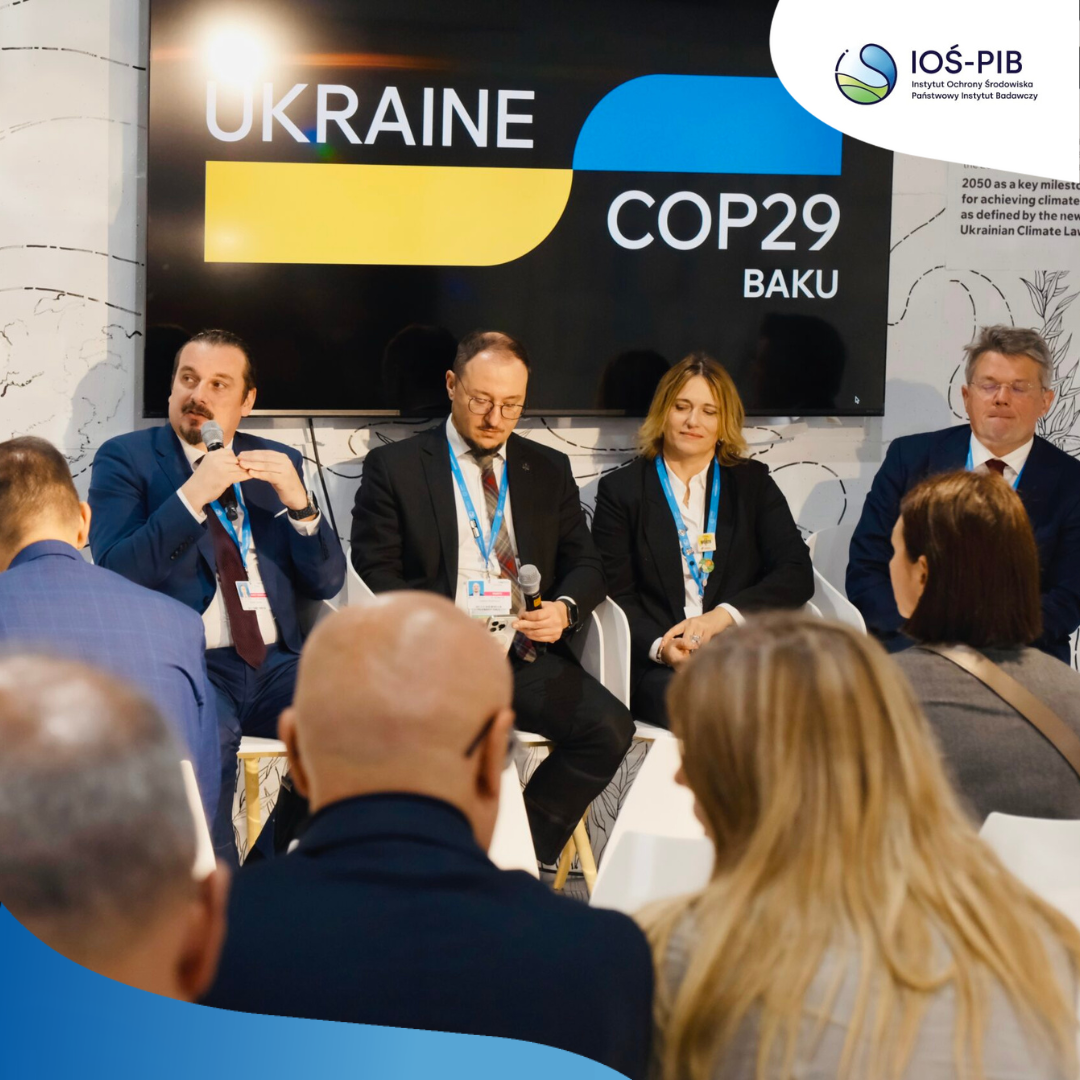
Experts from the National Centre for Emissions Management (KOBiZE) and the Centre for Climate and Energy Analyses (CAKE), operating within the Institute of Environmental Protection – National Research Institute (IOŚ-PIB), are actively participating in this year’s COP29 climate summit. During the session titled “Carbon pricing as a response to climate change in the EU neighbouring countries” held at the Ukrainian Pavilion, discussions revolved around global carbon pricing systems and their role in harmonizing climate policies, especially in the context of implementing the Carbon Border Adjustment Mechanism (CBAM).
Representatives from KOBiZE and CAKE, part of IOŚ-PIB, are engaged in numerous side events at the 29th Conference of the Parties (COP29) to the United Nations Framework Convention on Climate Change (UNFCCC). One such event, the session “Carbon pricing as a response to climate change in the EU neighbouring countries,” took place on November 14 at the Ukrainian Pavilion. The session was jointly organized by IOŚ-PIB in collaboration with the Energy Community Secretariat.
The event was opened by Oleh Bondarenko, Chair of the Environmental Policy Committee of Ukraine’s Verkhovna Rada, who emphasized the importance of international cooperation in climate policy. Following this, Maciej Cygler, an expert from KOBiZE, outlined the context of the discussion, presenting the global evolution of emissions trading systems (ETS) and the findings of analyses conducted by CAKE/KOBiZE/IOŚ-PIB under the LIFE VIIEW 2050 project. These analyses explore the integration of such systems with the EU and their potential to expand international climate policy tools.
The event’s highlight was a panel discussion moderated by Monika Figaj from the Energy Community Secretariat, featuring representatives from non-EU countries. Panelists included Artur Lorkowski (Director of the Energy Community Secretariat), Aliona Rusnac (State Secretary at the Ministry of Environment of Moldova), and Oleksii Riabchyn (Advisor to the Deputy Prime Minister of Ukraine on the EU Green Deal), who shared their experiences with implementing carbon pricing mechanisms in their respective countries.
The discussion addressed challenges related to the EU’s implementation of the CBAM carbon border tax. While CBAM poses challenges, it was acknowledged as a driver for the harmonization of climate policies. However, its significance may diminish as global emissions trading systems continue to develop.
Robert Jeszke, Deputy Director of IOŚ-PIB for Emissions Management, highlighted the crucial role of international cooperation in developing and integrating emissions trading systems. He presented analyses by IOŚ-PIB/KOBiZE under CAKE, which indicate the benefits of such initiatives while stressing the need for candidate countries to adequately prepare to meet EU requirements.
The event underscored that mechanisms based on carbon pricing are vital tools in combating global warming and could serve as a foundation for integrated international climate policy.


